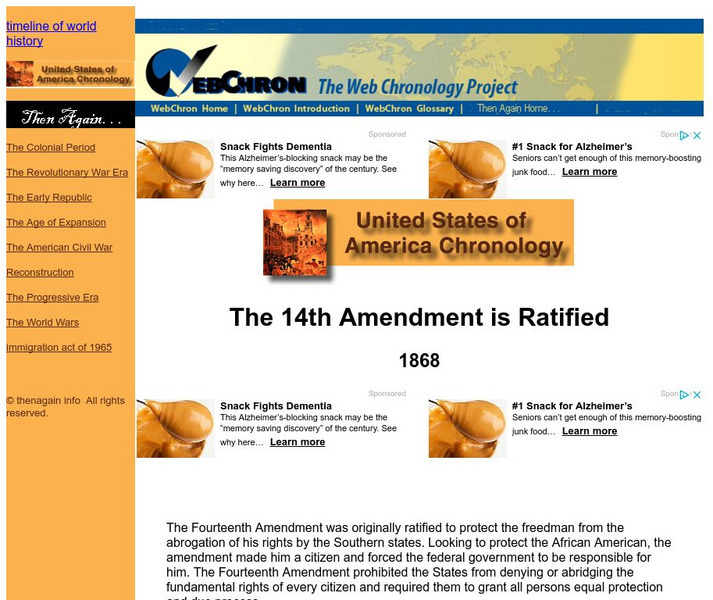Then Again
Then Again: Web Chron: World History Chronology: The 14th Amendment Is Ratified
Read about the 14th Amendment and its impact on the lives of African Americans during Reconstruction and later.
Other
Multimedia Schools: Moving Every Child Ahead the Big6
This article looks at applying the Big6 process to issues raised by No Child Left Behind legislation. The goal of the Big6 process is to improve performance by improving thinking through application of information technology skills. This...
Other
Certiorari Practice: The Supreme Court's Shrinking Docket
Recent legislation has allowed the Supreme Court discretionary, rather than obligatory powers, in deciding which cases to decide. This in-depth and well-developed essay describes the process and criticizes the new system, while providing...
iCivics
I Civics: Separation of Powers: What's for Lunch?
Students find out how the three branches of government interact with each other and how decisions about laws are made by several parts of the U.S. government.
Digital Public Library of America
Dpla: Road to Revolution: 1763 1776
This set of sources focuses on a selection of events, legislation, and perspectives from both sides during this time period. The documents, images, and artifacts help the student-historian understand the process of going from loyal...
A&E Television
History.com: 6 Key Inventions by Thomas Edison
Edison's genius was improving on others' technologies and making them more practical for the general public. Thomas Edison applied for his first patent in 1868, when he was just 21 years old. The famous inventor's first brainchild was...
Gilder Lehrman Institute of American History
Gilder Lehrman Institute: Immigration and Migration: Timeline and Terms
[Free Registration/Login Required] An interactive look at court cases that deal with the rights of immigrants between 1876 and 1901.
Library of Congress
Loc: Line Item Veto
Library of Congress' database listing for the Line Item Veto Act (1996). Includes the mechanics of how it would work, the history of the Act, and its eventual striking down by Supreme Court's decision. Very brief.




